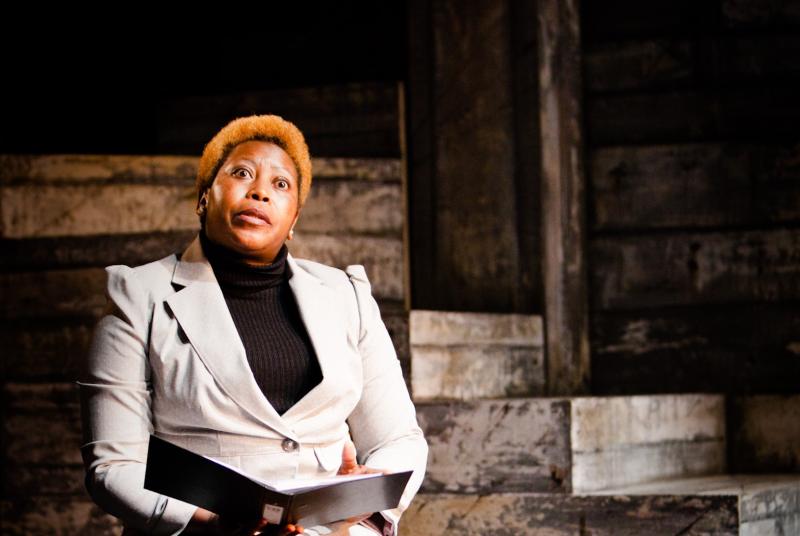A Labelled Life - by Tracy Ndovi
On Human Rights Day, Write to Life member Tracy reveals the damaging labels that survivors of torture can face and discusses the importance of resilience by sharing a piece that she has written with the group.
On the 10th of December, we celebrate the anniversary of the adoption of the Universal Declaration of Human Rights by the United Nations General Assembly in 1948. After 71 years, it is clear that this collective commitment to secure human rights has not been able to prevent gross human rights violations from taking place.
In the UK and elsewhere, survivors of human rights abuses often find themselves framed as victims and defined by these experiences.
What is human rights day?
Human Rights day is the celebration of the anniversary of the adoption of United Nations General Assembly Resolution 217 that ratified the Universal Declaration of Human Rights. The document is considered to be a milestone in defining human rights as we know them, and yet states continue to perpetrate mass atrocities and inflict torture.
What is Write to Life?
Write to Life is a creative writing and performance group that supports current and former clients to tell stories in different art forms. It is also the longest-running refugee-writing group in Britain, and the only one specifically for survivors of torture.
Tracy, a member of the group has written a piece in aid of human rights day to shed light on the experience of a survivor of torture. She writes about how language shapes stereotypes and writes of the determination that is required to break free from it.

A labelled life, by Tracy
I used to be reluctant to be known by my acquired identity. To be a refugee, a torture survivor is a package of stereotypes and pain which comes with a lot of shame and stigmatisation. I have always refused to focus on the negativities of this acquired identity, and I have refused to be a victim. ‘Arise and shine, Tracy! And see yourself as a victor’.
I have always related my character to a fine, supple tree growing in a river. When the floods are heavy, it bends down, to come back up when the floods abate.
I have told myself that I have the power to look for something positive in this identity which I got due to circumstances beyond my control.
Many people will perhaps always see torture survivors as victims; they don’t expect anything good to come from a torture survivor. All that is expected of us is mental health issues such as PTSD.
Many people will perhaps always see torture survivors as victims; they don’t expect anything good to come from a torture survivor. Those who read the Bible will know the quotation which says, ‘Can any good come out of Nazareth?’ In my own belief, they mean that a Nazarene cannot be a king. By the same token, a torture survivor cannot be a professional person in any field. All that is expected of us is mental health issues such as PTSD.
So, for the most part, when people are unfair to you and you become angry, a health professional observing your behaviour won’t bother to investigate those others’ actions towards you. All they see is the manifestation of a mental health condition due to trauma. They’re quick to judge, quick to diagnose and quick to give medication.
It’s not only torture survivors who have mental health conditions; anybody can suffer in this way.
But having been stereotyped in this way. I for one am not going to just sit and cry over spilt milk. But nor am I going to let my pain be in vain. So I have had to dig deep for what I can use from my suffering. I am in constant contact with other survivors, and with those who work with them. One thing I have learned is that resilience doesn't come from what you can already do. It comes from overcoming things you once thought you couldn't do. Resilience cannot be taught or given, but it can be facilitated through channels such as therapeutic writing and speaking out publicly.

Please try instead to see [us] as Experts by Experience: people who have not just suffered, but learned to put their suffering to good use
For this reason, I am grateful to Write to Life and the Survivors Speak OUT network. It is not easy to work with people like us, refugees, survivors and asylum seekers. We are accused of being economic migrants, the media piles on its criticisms, and sometimes the whole world can seem like a stockpile of pain. When you are disbelieved like this, it gives rise to hatred, anger and stupidity. It can squash you into a corner where you trust nobody – not even yourself.
So I have learned to fight, but not the physical fight which I grew up knowing. Being a torture survivor taught me many new ways of fighting such as resisting these insults and building self-reliance.
Please stop imputing PTSD to survivors and don’t see every torture survivor as a vessel for PTSD. Try to see the professional person behind the projected conditions. If I had my own way, I would define a mental health condition called ‘authority-induced PTSD’.
I am not saying this to be ungrateful, but to raise awareness in all organisations. NGOs and hospitals who deal with asylum seekers, refugees. Please try instead to see them as Experts by Experience: people who have not just suffered, but learned to put their suffering to good use.
If you would like to make a donation to support our Emergency Relief Fund, you can do so here, or click here to donate now to Freedom from Torture.


